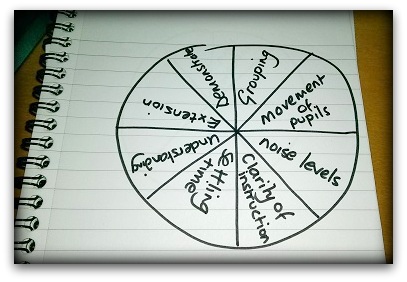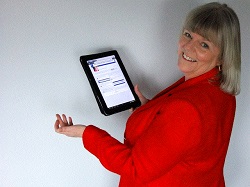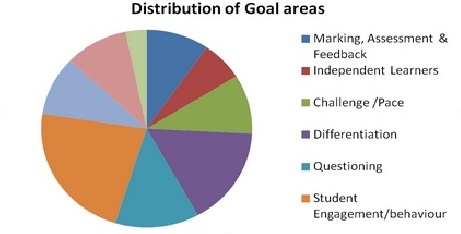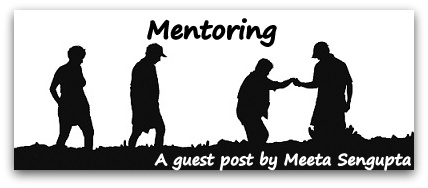Are we talking the same language?
Returning guest poster, Teacher Coach Amanda Clegg shares more real life coaching experience in today’s guest post.
Are we talking the same language?
By Amanda Clegg

Coaching is taking us from where we are to where we want to be. But what if you want to change, but are finding it difficult to trust in the process and also your coach?
This was one of my current challenges as a Teacher Coach. I am working with George* who has received three lesson observations graded as inadequate or requires improvement in the last academic year.
George has tried to evade our coaching meeting for the last 2 appointments citing coursework marking as the reason. He even cancelled all the pre-booked meetings on the school electronic diary system with no reason. It was difficult to decide how to approach this from a coach’s point of view. I was busy too with lots of marking to do myself and at this time of year I could benefit from some extra time.
However, the internal voice began chattering away saying:
– How rude!
– If you let him get away with this now, then he will always make excuses!
– Maybe you can’t coach him- he is too difficult!
– Maybe he is one of those people they tell you about on training- not all people are suitable for coaching- you can only be coached if you want to be.
– Maybe you will be letting him down if you let him off coaching this week.
– Maybe he is just trying it on
– Maybe he doesn’t think you are any good and not worth the time.
I have a personal rule which is not to respond immediately wherever possible when I feel annoyed by something or someone. It has always served me well. I might write an email or plan in my head what to do at the time, but I always leave time for further contemplation. Sometimes just the act of banging out an email on the uncomplaining computer keyboard and saving it to send the next morning make me feel a lot better. I rarely ever need to send the email because after calming down, I think of a better cause of action.
I was reminded of a saying one of my own trainers often used.
“The mind works like a parachute, it works best when it is open.”

This situation was not about me, it was not personal and why was I starting to question my own competence. I was also reminded of the Karpman Drama triangle. If we were to enter into a coaching relationship, I needed to remind George of what coaching was and was not. I could not collude with him in deciding coaching was not important. What message would that give to George about the sort of coach I am and also what coaching is about? If George ultimately decided not to have coaching then again that would be a decision rather than the vagueness of coaching when we have time or the inclination. I considered looking at the Cycle of Change work that has been done by Prochaska and Diclemente, but decided this might be a bit heavy. It is however sat in my toolbox should I need George to decide if he wants to stay as he is or decide to make a change.
I saw George the following day and asked him for an alternative time to meet, but it had to be within the same week. He gave me a time the same day, much to my surprise. Glad I didn’t send the email telling him how arrogant he was and didn’t he think I was busy too etc.
In our meeting, George told me he felt he needed to work on “progress” as this was where he felt he was inadequate. I asked him to tell me where he thought he was in terms of progress on a scale of 1 to 10. George was unwilling to commit to a number, going on to describe his current feeling about work as not enjoyable. He felt the fun had gone from teaching. This was not always the case and we were able to go back to a time when George felt he was well liked, respected and was doing a good job. George suddenly had a smile on his face and his physiology changed. He sat upright and lifted his head.
Gently guiding him to look into the future, we looked at what life was like in April 2019, five years from now. After a couple of moments, George was describing the life he wanted with great detail- the house is finally finished, the two children are at secondary school, his wife is back at work, they would both be 40 and having a family party and so the picture went on.
I was wondering what type of employment George would be doing as this was never mentioned. I asked him what he would be doing during the week and he looked at me quizzically and said “Teaching, it is what I love”. The smile had stayed put and he accused me of tricking him light heartedly. I felt glad that I had not let him brush me aside as I was sure we would be able to work together now. George had shared a moment with me and let me see what he could see for his future.
I reminded him that coaching was confidential between us and he said he believed me, but that it didn’t matter really. I felt it important to reiterate I would not be talking to anyone else about anything we discussed.
I asked him what he would like to focus on for the remainder of the session and he returned to “progress”. Then out of the blue – came a question which changed the course of our session and reminded me about one of the fundamentals of coaching. I asked George to define progress.
George found it incredibly hard to describe progress. I wondered what George had taken from the sessions we had received over the year from the senior management on being able to demonstrate progress. How did George interpret the Ofsted Framework?
It was so hard not to jump in and “tell” George my definition of progress. I was literally sitting with my hand in my mouth to stop myself. As George talked, I drew a circle and divided it up into sectors writing one of his key terms in each area. He looked at what I was doing and it spurred him on to more descriptions.
Our “Progress” wheel.

I was glad I had asked the question as it became very apparent George defined progression in the same way I would define transitions. A useful little question I will not forget to use in the future!
George has taken what we called the Progress Wheel away to look at which areas in particular he would like to consider in more detail next week.
Thanks to George in helping me continue to learn.
*George is a fictitious name for a larger than life character.
About Amanda Clegg
 Amanda Clegg has been a science teacher in state secondary schools for almost thirty years. She was a member of a Senior Leadership team for 15 years before being asked to lead a private sixth form college through their initial ISI inspection. The college achieved an outstanding judgement. Amanda now works as an Educational and Coaching Consultant in Oxfordshire and Swindon. She is currently acting as temporary Head of Science two days a week in a local secondary school, as well as being an Associate trainer for Creative Education, co-author of a GCSE revision guide and an Associate Lecturer for UWE on the PGCE programme.
Amanda Clegg has been a science teacher in state secondary schools for almost thirty years. She was a member of a Senior Leadership team for 15 years before being asked to lead a private sixth form college through their initial ISI inspection. The college achieved an outstanding judgement. Amanda now works as an Educational and Coaching Consultant in Oxfordshire and Swindon. She is currently acting as temporary Head of Science two days a week in a local secondary school, as well as being an Associate trainer for Creative Education, co-author of a GCSE revision guide and an Associate Lecturer for UWE on the PGCE programme.
https://www.facebook.com/AKCConsultancy
http://uk.linkedin.com/in/akcconsultancy
email: cft-acleggsupanetcom
Twitter: @Teachercoach1

 If you are hooked in, then this person will keep coming back with issues for you to solve. If your advice is ever wrong they have their get out of jail free card – Mr X told me to do it.
If you are hooked in, then this person will keep coming back with issues for you to solve. If your advice is ever wrong they have their get out of jail free card – Mr X told me to do it.


